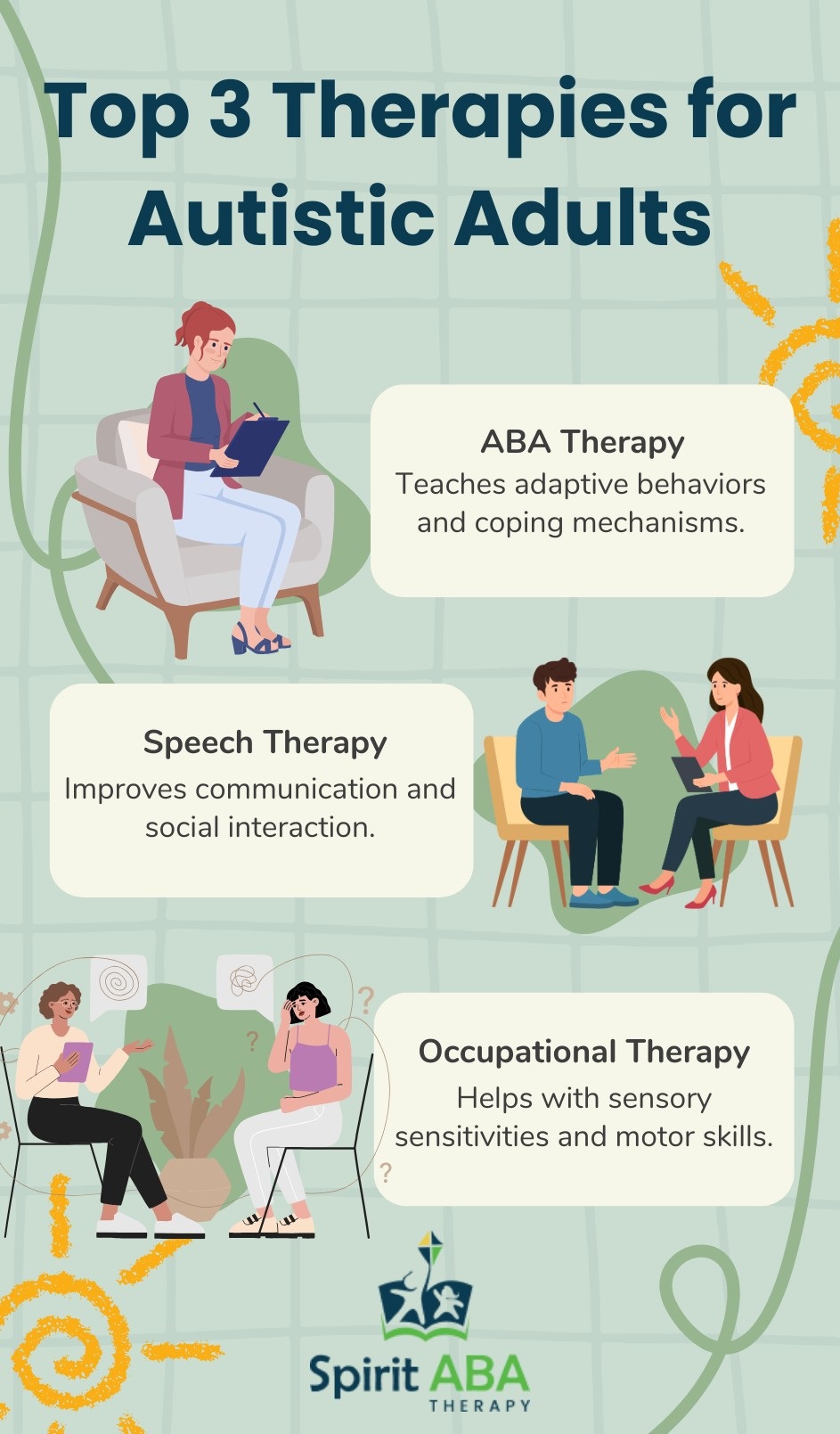Key Points:
- Many adults, including parents, may be on the autism spectrum without a formal diagnosis.
- Common signs of autism in adults include difficulty with social interactions, sensory sensitivities, and rigid routines.
- Recognizing autism in a parent can help improve communication and support through evidence-based therapy like ABA.
Maybe your parent has always seemed socially awkward, overly rigid, or intensely focused on one interest. Now, you’re wondering: Could they be on the autism spectrum? Many adults have autism without realizing it. Recognizing the signs can help you navigate your relationship and offer them the support they need.
Does My Parent Have Autism?
Autism in adults can present as difficulty with social communication, repetitive behaviors, sensory sensitivities, and strong adherence to routines. But many adults—especially those over 40—grew up without access to proper diagnostic tools. A study in England even estimates that there are 500,000 individuals aged 20 to 49 who are undiagnosed.
Many older adults have adapted to their traits over time, making autism harder to recognize. If your parent struggles with understanding emotions, resists change, or has intense interests, they may be on the autism spectrum. A professional evaluation can confirm whether they meet the criteria for ASD.

What Are the Common Signs of Autism in Adults?
Autism presents differently in each person, but certain patterns often emerge in undiagnosed adults. Your parent may have developed coping mechanisms over the years, but key signs may still be noticeable.
1. Social Communication Difficulties
Autism often affects the way a person interacts with others. Adults with ASD might:
- Struggle with understanding sarcasm or implied meanings.
- Speak in a formal or monotone manner, even in casual settings.
- Have difficulty maintaining conversations or shifting topics smoothly.
- Avoid eye contact or find it uncomfortable.
Many undiagnosed parents may have learned to mask these challenges, but they might still struggle in subtle ways.
2. Sensory Sensitivities
Many autistic adults experience heightened or reduced sensitivity to sensory input, including:
- Discomfort with bright lights, loud noises, or crowded spaces.
- Strong aversions to certain textures in food or clothing.
- A need for deep pressure (e.g., preferring tight hugs or weighted blankets).
Your parent may not realize their sensory preferences are linked to autism, but these sensitivities can significantly impact their daily life.
3. Rigid Routines and Strong Preferences
A strong preference for routines and resistance to change is another key indicator. Signs include:
- Sticking to strict schedules for meals, bedtime, or daily activities.
- Becoming anxious or upset when plans change unexpectedly.
- Preferring repetitive behaviors, such as eating the same food daily or following specific rituals.
If your parent reacts strongly to disruptions in their routine, autism might be a factor.
4. Special Interests and Deep Focus
Autistic adults often have intense interests in specific topics, sometimes at the expense of other responsibilities. This may include:
- A lifelong passion for a hobby, topic, or collection.
- Talking at length about their interest without noticing if the listener is engaged.
- Deep focus on tasks or projects, sometimes to the point of neglecting basic needs.
If your parent has an encyclopedic knowledge of a subject and spends hours engaged in it, this could be a sign of autism.
5. Difficulty Understanding Social Norms
Autistic adults may struggle with unspoken social rules. Your parent might:
- Stand too close or too far in conversations.
- Interrupt frequently or have difficulty knowing when to speak.
- Struggle with recognizing facial expressions or emotions.
While they may have developed workarounds over time, these challenges may still be present.
How Can I Support a Parent Who Might Have Autism?
If you suspect your parent has autism, understanding their experiences can help improve your relationship. Here’s how you can support them:
1. Communicate Clearly and Directly
Many autistic adults prefer straightforward, literal communication. Instead of hinting at something, try:
- Using clear, direct language.
- Avoiding sarcasm or ambiguous phrases.
- Being patient if they need time to process information.
2. Respect Their Routines and Boundaries
Rather than forcing change, try accommodating their preferences by:
- Giving advance notice before altering plans.
- Respecting their need for quiet or alone time.
- Avoiding unnecessary sensory triggers (e.g., loud music or strong scents).
3. Encourage Professional Evaluation (If They’re Open to It)
If your parent is open to exploring a diagnosis, suggest seeking a professional assessment. This can help them:
- Gain a better understanding of themselves.
- Access support and accommodations.
- Improve relationships with family members.
Some adults may resist the idea of an autism diagnosis, so approach the topic with sensitivity.
Can Autism Be Treated in Adults?
Autism isn’t something that needs to be “cured,” but adults on the spectrum can benefit from support and therapy. The goal is to help them navigate challenges more effectively.
One of the most effective approaches is Applied Behavior Analysis (ABA) therapy, which focuses on improving social skills, communication, and daily living abilities. ABA helps individuals develop coping strategies that enhance their quality of life.
Helpful therapies and interventions for autistic adults include:

With the right support, autistic adults can build independence, improve relationships, and feel more comfortable in their daily lives.
Need Support? ABA Therapy Can Help
Recognizing signs of autism in a parent can be eye-opening, but it’s also an opportunity to build a stronger, more understanding relationship. If your parent struggles with communication, routines, or sensory sensitivities, ABA therapy can provide practical strategies to improve their daily life.
At Spirit ABA, we specialize in evidence-based ABA therapy designed to help individuals with autism build essential life skills and reach their full potential. Providing ABA therapy services across Colorado, Iowa, and Nebraska, our compassionate team is here to support you—whether your loved one has a formal autism diagnosis or is showing signs that suggest they may benefit from care.
Want to learn more? Contact Spirit ABA today to explore therapy options and personalized support for your family.


